
Navigating the Imperative of Fuel Purity: An Industry Overview
In today's highly industrialized landscape, the integrity of fuel systems stands as a cornerstone for operational efficiency, longevity of machinery, and environmental compliance. Across a spectrum of sectors, from petrochemical processing and heavy-duty transportation to precision manufacturing and critical power generation, the quality of fuel directly impacts performance metrics and maintenance expenditures. Contaminants—ranging from particulate matter and sediment to water and microbial growth—pose significant threats to sensitive engine components, fuel injectors, and lubrication systems. These impurities can lead to accelerated wear, diminished fuel economy, increased emissions, and, most critically, unscheduled downtime that translates directly into substantial financial losses. The proactive management of fuel purity is not merely a best practice; it is an economic necessity and a regulatory imperative, especially as modern engines become increasingly sophisticated and less tolerant of even microscopic contaminants. The demand for robust, high-performance filtration solutions is thus on an upward trajectory, driven by stringent emission standards, the rising cost of fuel, and the relentless pursuit of operational excellence. Businesses globally are recognizing that investing in superior filtration technology, such as the advanced gasoline filter funnel, is not just an expense but a strategic investment that yields tangible returns in equipment reliability, operational continuity, and overall profitability. This introductory insight sets the stage for a comprehensive exploration into the pivotal role of advanced filtration, detailing the technological advancements, critical applications, and the overarching economic benefits that such solutions bring to complex industrial operations, ensuring that every drop of fuel is as clean and efficient as possible for optimal system performance.
The global fuel filtration market is experiencing robust growth, fueled by several key trends. Firstly, the increasing adoption of common rail direct injection (CRDI) systems in diesel engines, which operate at significantly higher pressures and tighter tolerances, necessitates ultra-fine filtration to prevent damage from even minute particulates. Secondly, the push towards cleaner fuels, including ultra-low sulfur diesel (ULSD) and various biofuels, introduces new challenges related to water separation and microbial contamination, demanding specialized filtration media. According to a report by Grand View Research, the global fuel filter market size was valued at USD 10.3 billion in 2022 and is projected to grow at a compound annual growth rate (CAGR) of 5.1% from 2023 to 2030, driven largely by the expanding automotive and industrial sectors. This growth underscores the critical nature of effective fuel management, extending beyond vehicular applications to stationary power plants, agricultural machinery, and marine vessels. The environmental aspect also plays a crucial role; contaminated fuel combustion contributes to higher levels of particulate matter and noxious gases, making advanced filtration a key component of sustainable industrial practices. Furthermore, the rising awareness among end-users regarding the long-term benefits of fuel cleanliness, including reduced maintenance costs and extended equipment lifespan, is driving the demand for more sophisticated and efficient filtration solutions. This involves a shift from basic filtration to multi-stage systems that can address a broader spectrum of contaminants, ensuring that fuel delivery systems remain uncompromised even under demanding operational conditions. The continuous evolution of engine technology mandates a parallel evolution in filtration technology, making the careful selection and implementation of solutions like a high-performance gasoline filter funnel an indispensable element of modern industrial operations.
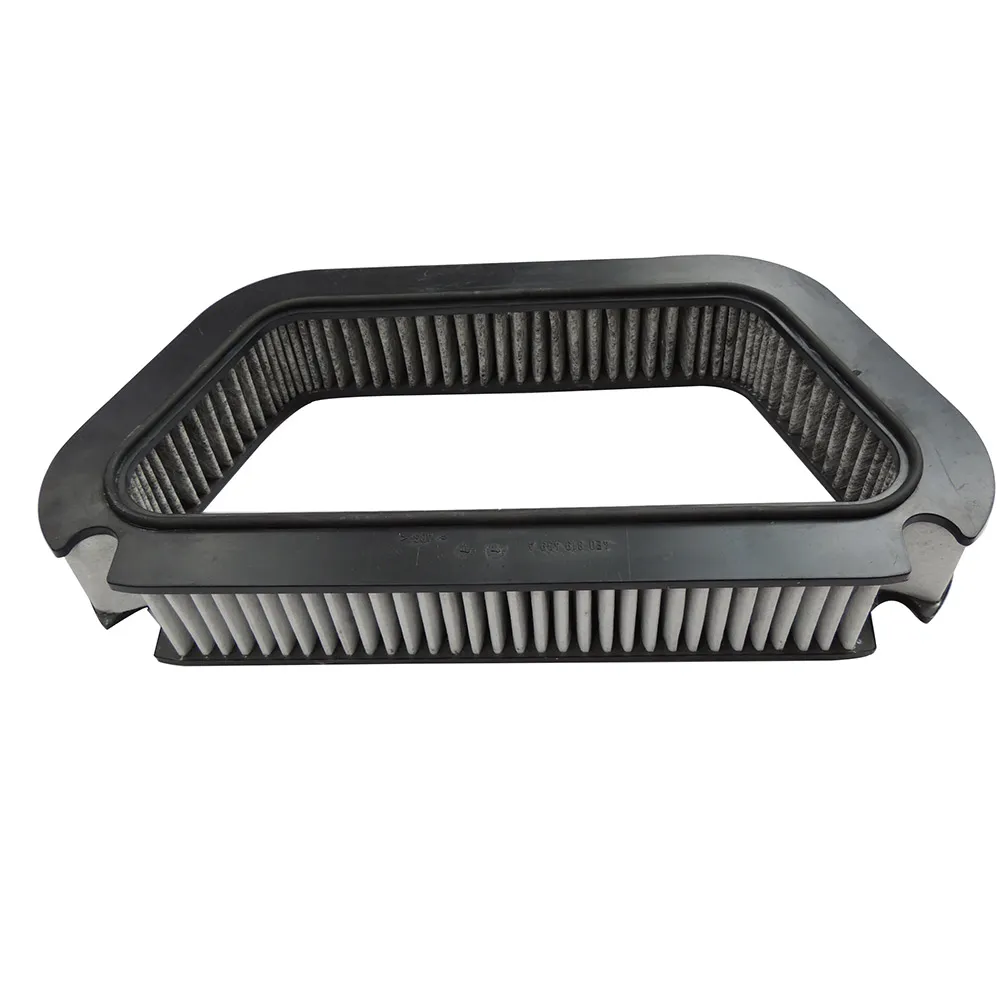
The Critical Engineering of a Gasoline Filter Funnel: Design, Materials, and Manufacturing Excellence
The engineering of a high-performance gasoline filter funnel involves a meticulous interplay of material science, precision manufacturing, and adherence to rigorous quality standards. Far from being a simple accessory, a well-designed gasoline filter funnel is a sophisticated filtration device engineered to safeguard engines and fuel systems from harmful contaminants. The primary function is to capture particulate matter, debris, and free water before they enter the fuel tank, thereby preventing a cascade of operational issues. Typically, the manufacturing process begins with the selection of premium-grade materials. For the funnel body, materials like high-density polyethylene (HDPE) or other robust engineering plastics are chosen for their excellent chemical resistance to various fuels, including gasoline, diesel, kerosene, and even some bio-fuels, as well as their durability against impacts and environmental stressors. These materials are often fortified with UV inhibitors to prevent degradation when exposed to sunlight, ensuring a long operational life. The critical filtration element, often referred to as a gasoline filter screen or gasoline strainer, is generally constructed from precision-woven stainless steel mesh or a specialized synthetic media. Stainless steel (e.g., SUS304 or SUS316) is preferred for its superior corrosion resistance, high tensile strength, and consistent pore size, crucial for accurate micron-level filtration.
The manufacturing process typically incorporates several advanced techniques to ensure the funnel’s structural integrity and filtration efficiency. Plastic components are commonly produced via injection molding, a process that allows for complex geometries, consistent wall thickness, and rapid production cycles. This method ensures that the funnel's ergonomic design, flow channels, and sealing surfaces are precisely formed. Metal filtration elements, such as the gasoline filter screen, undergo precision stamping or weaving processes, followed by laser cutting or welding for seamless integration into the funnel body. CNC (Computer Numerical Control) machining might be employed for critical interfaces or specific components requiring exceptionally tight tolerances, although for a standard gasoline filter funnel, its application might be more for mold creation than direct product manufacturing. Post-production, each component undergoes stringent quality control. This includes visual inspections for defects, dimensional checks using precision gauges, and material integrity tests. The assembled product is then subjected to performance testing, often including flow rate tests to ensure minimal restriction and filtration efficiency tests to confirm the specified micron rating. Adherence to international standards such as ISO (International Organization for Standardization) for quality management systems (e.g., ISO 9001) and ANSI (American National Standards Institute) for product performance and safety is paramount. These certifications validate the manufacturer's commitment to consistent quality and reliable product performance. A typical gasoline filter funnel, especially one designed for industrial or heavy-duty use, is engineered for a service life that can extend for many years, provided it is used and maintained according to specifications. Its robust construction and quality materials contribute to exceptional resistance to corrosion, ensuring it remains effective even when regularly exposed to harsh fuel environments and varying temperatures.
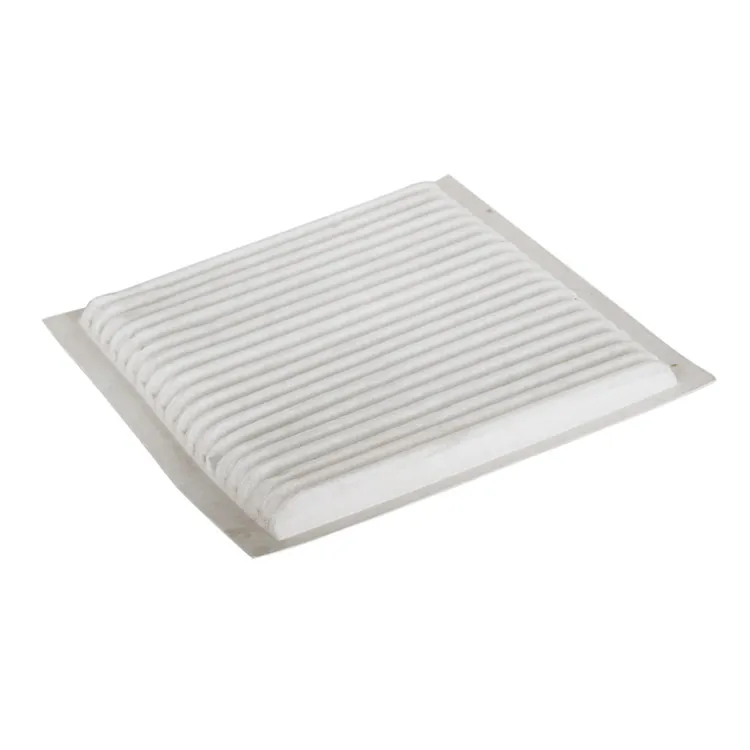
Technical Specifications & Performance Metrics: Benchmarking Filtration Excellence
Understanding the technical specifications of a gasoline filter funnel is crucial for procurement managers and technical personnel to ensure optimal compatibility and performance within their specific operational contexts. Beyond its apparent simplicity, a high-quality gasoline filter funnel is defined by a series of critical parameters that dictate its effectiveness, durability, and suitability for various applications. Key specifications include the micron rating, which quantifies the smallest particle size the filter can effectively capture; typical industrial-grade funnels often feature filtration capabilities ranging from 100 microns down to 10 microns, with some specialized models offering even finer filtration for highly sensitive applications. The flow rate capacity, measured in liters or gallons per minute, is another vital metric, indicating how quickly fuel can be transferred through the funnel without causing excessive back pressure or impeding operations. Material compatibility, ensuring resistance to a wide range of fuel types and additives, is also paramount, as is the operating temperature range, which verifies performance stability across diverse climatic conditions. Furthermore, the construction material's resistance to UV degradation and impact is essential for longevity, particularly in outdoor or rugged industrial environments. A robust gasoline strainer design minimizes pressure drop while maximizing contaminant retention capacity, ensuring that the fuel system receives clean fuel efficiently.
To provide a clear and comparable overview, the table below outlines typical technical specifications and performance metrics for an industrial-grade gasoline filter funnel, often incorporating a sophisticated gasoline filter screen. These parameters are vital for assessing a product's suitability for various demanding applications across industries such as petrochemical, marine, heavy construction, and power generation. The "Gas Filter Cost" is often offset by the significant savings in maintenance and extended equipment lifespan, making the initial investment a negligible factor compared to the long-term benefits of preventing costly fuel system failures. For instance, a filter designed for a 10-micron rating ensures the removal of particles that are invisible to the naked eye but can cause significant wear to fuel injectors and pumps. The materials of construction, typically high-grade polymers and stainless steel, are selected for their exceptional chemical resistance and mechanical strength, guaranteeing operational integrity even in corrosive fuel environments. Furthermore, certified performance testing, often conducted in accordance with ISO 16889 or similar filtration standards, validates the filter's efficiency and dirt-holding capacity. Such rigorous testing provides assurance that the product will perform as advertised under real-world conditions, making it a reliable component in any fuel transfer or storage system.
| Parameter | Typical Specification (Industrial Grade) | Benefit to User |
|---|---|---|
| Filtration Efficiency | 10-25 Micron (depending on model, often multi-stage) | Removes fine particulate matter & sediment, protects sensitive fuel system components (e.g., injectors, pumps). |
| Water Separation Efficiency | Removes Free Water (98%+) | Prevents corrosion, microbial growth, and water-induced engine damage. Extends fuel system life. |
| Flow Rate Capacity | Up to 15-20 GPM (55-75 LPM) | Enables rapid and efficient fuel transfer, minimizing downtime during refueling operations. |
| Construction Material (Body) | High-Density Polyethylene (HDPE) or Glass-Filled Nylon | Excellent chemical resistance to fuels, high durability, impact resistance, and UV stability for long life. |
| Filter Element Material | Stainless Steel Mesh (SUS304/316) or Coalescing Media | Corrosion resistance, precise pore size for consistent filtration, reusable/cleanable options. |
| Operating Temperature Range | -20°C to +60°C (-4°F to +140°F) | Reliable performance in diverse environmental conditions, from cold winters to hot summers. |
| Anti-Static Properties | Integrated Grounding Wire/Conductive Materials | Minimizes static electricity buildup during fuel transfer, reducing fire hazards in volatile environments. |
| Certifications & Standards | ISO 9001, ANSI, CE (where applicable) | Ensures product quality, reliability, and compliance with international safety and performance standards. |
These specifications collectively define the efficacy and economic value of a gasoline filter funnel. For example, a high flow rate is indispensable in industries where rapid fuel transfer is critical, such as aviation ground support or large-scale agricultural operations, minimizing costly idle time. The specific filtration media and micron rating are chosen based on the sensitivity of the downstream equipment. Modern common rail diesel engines, for instance, require filtration down to 2-5 microns to prevent damage to their ultra-fine injectors, highlighting why a multi-stage or precision gasoline filter screen is paramount. Manufacturers often provide detailed technical data sheets and performance curves, including differential pressure versus flow rate and dirt-holding capacity, which allow engineers to precisely model the filter's behavior within their specific system designs. Furthermore, the inherent design for longevity, including the choice of materials resistant to chemical degradation and mechanical wear, directly translates into reduced replacement costs and maintenance intervals, offering a significant long-term economic advantage. The investment in such a robust filtration solution is a strategic decision that underpins operational reliability and contributes directly to the bottom line by preventing premature equipment failures and ensuring consistent, high-quality fuel delivery.
Versatile Application Scenarios and Industry-Specific Advantages
The utility of a specialized gasoline filter funnel extends far beyond simple fuel transfer, finding critical applications across a multitude of heavy industries where fuel purity is non-negotiable for operational integrity and safety. In sectors like petrochemicals, where bulk fuel storage and transfer are daily operations, these funnels serve as a primary line of defense against both macroscopic debris and microscopic contaminants introduced during delivery or storage. Their robust design, often incorporating an advanced gasoline strainer, ensures that even large volumes of fuel can be processed efficiently while capturing impurities before they can enter sensitive refinery equipment or product streams. In the metallurgy sector, particularly in operations utilizing fuel-fired furnaces or heavy machinery, the presence of even minor contaminants in fuel can lead to inconsistent heat profiles, equipment fouling, and compromised material quality. The use of a high-performance gasoline filter funnel here ensures uniform combustion and extends the lifespan of expensive burners and associated control systems, contributing significantly to process stability and cost efficiency. For the burgeoning field of power generation, whether from gas turbines, diesel generators, or internal combustion engines, consistent fuel quality is paramount for maintaining uninterrupted power supply and adherence to emission regulations. A reliable fuel filter funnel prevents particulate build-up in fuel lines and injectors, reducing the likelihood of unexpected shutdowns and the associated revenue losses.
Beyond these, the applications are extensive and diverse. In the marine industry, where vessels operate in challenging environments and rely heavily on the purity of bunkered fuel, the gasoline filter funnel is invaluable. It helps to prevent water ingress and particulate contamination that can lead to engine breakdowns at sea, a critical safety and operational concern. For large-scale agricultural operations, which utilize a fleet of heavy machinery from tractors to harvesters, the integrity of the fuel supply directly correlates with harvest efficiency and equipment uptime. Filtering fuel before it enters the machinery prevents costly repairs and ensures peak operational performance during critical seasons. In the construction and mining industries, where heavy earth-moving equipment operates in dusty, harsh conditions, the risk of fuel contamination from airborne particles or dirty storage tanks is significantly elevated. A robust gasoline filter funnel acts as a crucial safeguard, protecting expensive diesel engines from damage and extending their service life in these demanding environments. The unique advantage these funnels offer is their simplicity of use combined with highly effective filtration, making them ideal for field use, remote sites, and situations where full-scale filtration systems might not be practical or immediately available. The investment in such a tool represents a proactive approach to fuel management, safeguarding assets and ensuring continuous, reliable operation across a wide range of industrial and commercial applications. The cumulative benefits, including reduced maintenance, enhanced equipment longevity, and improved operational efficiency, significantly outweigh the initial gas filter cost, making it a valuable asset for any organization dependent on clean fuel.
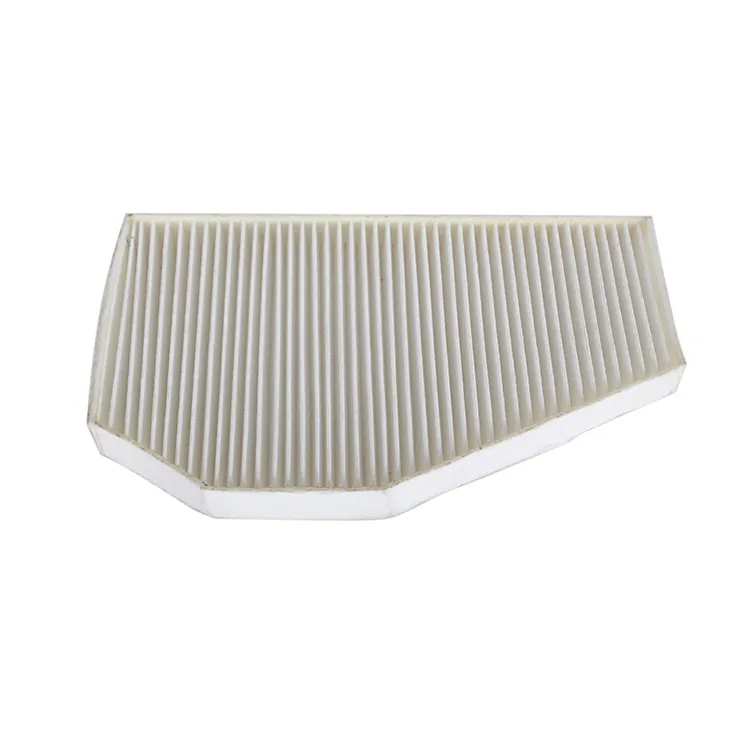
Unlocking Operational Efficiency: Technical Advantages and ROI Analysis
The deployment of a high-quality gasoline filter funnel translates directly into a multitude of technical advantages that collectively drive significant return on investment (ROI) for industrial and commercial operations. Firstly, the primary technical advantage is superior contaminant removal. Modern funnels are designed with advanced filtration media, such as finely woven stainless steel mesh for the gasoline filter screen, capable of removing microscopic particulate matter and free water down to specified micron levels. This prevents abrasive wear on fuel injectors, fuel pumps, and other precision engine components, which are highly susceptible to damage from even minute contaminants. For instance, a typical fuel injector nozzle aperture can be as small as 0.15mm, making it extremely vulnerable to clogging or erosion by particles larger than 10 microns. By maintaining fuel cleanliness, these funnels extend the operational lifespan of expensive machinery, drastically reducing the frequency and cost of component replacements and major overhauls. Secondly, water separation capabilities are a critical technical strength. Water, often introduced through condensation in storage tanks or poor handling practices, can lead to microbial growth (fuel bug), corrosion within the fuel system, and even engine hydrolock. Advanced funnels employ hydrophobic filter media that effectively coalesce and separate water from fuel, preventing these issues and safeguarding fuel quality.
A third significant technical advantage lies in enhanced fuel efficiency. Clean fuel combusts more completely and efficiently, leading to optimized fuel economy and reduced emissions. Contaminated fuel, on the other hand, can lead to incomplete combustion, higher fuel consumption, and increased soot and pollutant emissions, potentially violating environmental regulations. By ensuring fuel purity, the gasoline filter funnel contributes to greener operations and compliance with increasingly stringent environmental standards. Fourthly, they significantly reduce unscheduled downtime. Equipment failures due to contaminated fuel can halt production, disrupt supply chains, and incur massive costs in terms of lost revenue, expedited repairs, and labor. By preventing these failures, the filter funnel ensures operational continuity and predictability, allowing businesses to meet their commitments and maintain productivity. When considering the gas filter cost, it is crucial to conduct a comprehensive ROI analysis. A typical industrial-grade gasoline filter funnel, while representing an initial investment, can easily pay for itself many times over by preventing a single major engine repair. For example, replacing a set of fuel injectors in a heavy-duty diesel engine can cost upwards of $5,000 to $10,000, not including labor and the lost productivity from downtime. Compared to this, the initial investment in a quality filtration funnel is negligible. Furthermore, the extended lifespan of equipment, reduced fuel consumption, and improved environmental compliance all contribute to a compelling case for the immediate adoption of these essential filtration devices. The cumulative effect of these technical advantages positions the gasoline filter funnel as a vital tool for long-term operational sustainability and profitability.
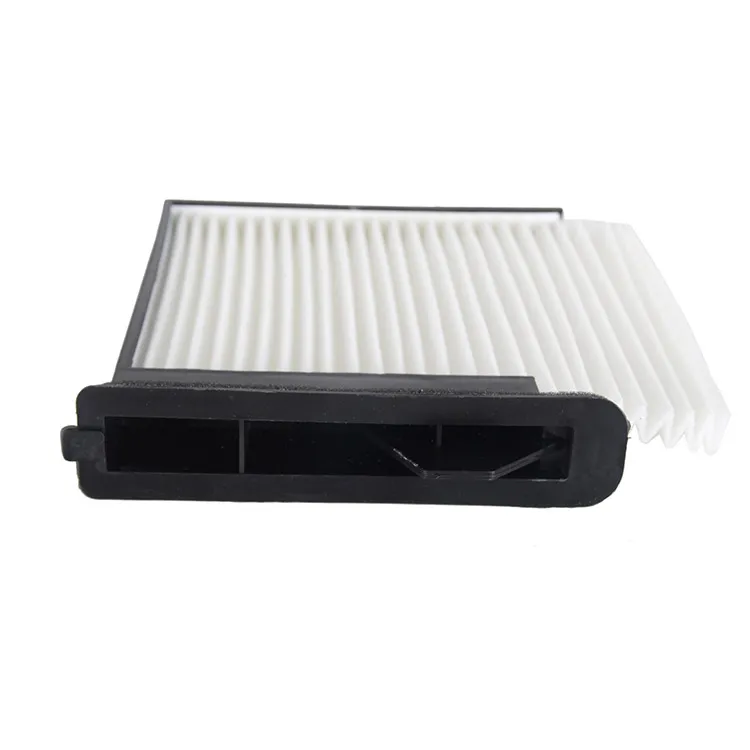
Manufacturer Comparison and Selection Criteria: Ensuring Authoritativeness
Selecting the right manufacturer for a gasoline filter funnel and related fuel filtration solutions is a decision of paramount importance, demanding a thorough evaluation beyond mere initial pricing or basic specifications. The market is saturated with various providers, but not all offer the same level of quality, engineering expertise, or post-sales support that B2B clients require. A key differentiator lies in the manufacturer's established expertise and industry experience. A reputable manufacturer will possess decades of specialization in filtration technology, evidenced by a robust portfolio of successful implementations across diverse industries, from heavy machinery to delicate petrochemical applications. Their deep understanding of fluid dynamics, material science, and contaminant behavior directly translates into superior product design and performance. For instance, a manufacturer with a proven track record in producing high-precision gasoline filter screen elements will leverage this expertise to ensure consistent micron ratings and efficient water separation in their funnels. Furthermore, authoritative manufacturers invest heavily in research and development, continuously innovating to address emerging challenges in fuel purity, such as those posed by new fuel formulations or increasingly sensitive engine technologies. This commitment to R&D ensures that their products are always at the forefront of filtration science.
Beyond technical prowess, a manufacturer's adherence to international quality standards and certifications is a non-negotiable criterion. Certifications such as ISO 9001 for quality management systems, and product-specific certifications like CE marking (for European markets) or compliance with ANSI/SAE standards, provide objective proof of consistent manufacturing quality and product reliability. These certifications are not just badges; they represent a commitment to rigorous testing protocols, stringent material traceability, and continuous process improvement. Companies with FDA approvals (if applicable for certain fuel additives or processes) or other industry-specific endorsements further demonstrate their authoritative standing. Another critical aspect is the transparency of test data and performance validation. Leading manufacturers will readily provide comprehensive test reports, performance curves (e.g., differential pressure vs. flow rate), and dirt-holding capacity data for their products, allowing clients to make informed decisions based on verified performance rather than marketing claims. Customer feedback and service case studies offer valuable insights into a manufacturer's practical experience and responsiveness. Organizations like JY Filter, with a proven history of serving a global clientele and possessing robust quality certifications, exemplify the type of authoritative and trustworthy partner essential for critical fuel filtration needs. Their commitment to providing detailed product information, engineering support, and reliable supply chains positions them as a preferred choice for businesses seeking to optimize their fuel management strategies and ensure the longevity of their assets, offering exceptional value for the gas filter cost.
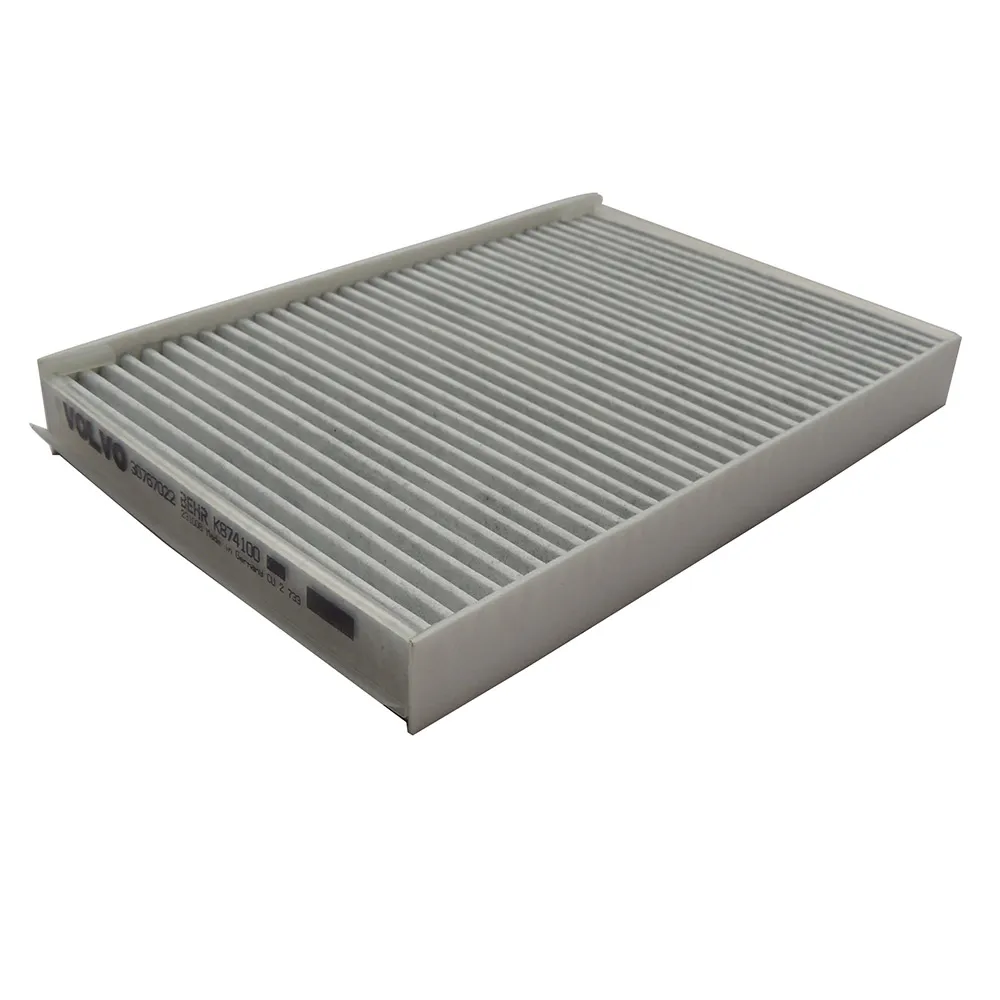
Customization Capabilities and Bespoke Solutions for Unique Demands
While standard models of gasoline filter funnel provide excellent general-purpose solutions, many industrial and specialized applications demand bespoke filtration capabilities tailored to unique operational parameters, environmental conditions, or specific fuel types. Recognizing this, leading manufacturers offer extensive customization options, transforming the standard product into a precisely engineered solution. This can involve alterations to the funnel's geometry to fit confined spaces or non-standard fuel tank openings, adapting the material composition for enhanced chemical resistance against highly corrosive or unusual fuel blends, or integrating specialized features for improved ergonomics in particular use cases. For instance, an operation dealing with highly viscous fuels in extreme cold might require a funnel with a wider neck and a different filter element material that maintains optimal flow rates without clogging. Similarly, an application in a highly explosive environment might necessitate anti-static properties beyond standard requirements, achieved through specific material additives or integrated grounding systems within the gasoline filter funnel design.
The customization process typically begins with a detailed consultation, where the client's specific requirements, challenges, and operational context are thoroughly analyzed by the manufacturer's engineering team. This often involves assessing existing fuel transfer processes, identifying potential contamination sources, and understanding the sensitivity of downstream equipment. Based on this in-depth analysis, a custom solution is proposed, which might include: altering the micron rating of the gasoline filter screen for ultra-fine filtration needs; incorporating multi-stage filtration capabilities to address a broader spectrum of contaminants (e.g., a pre-filter for coarse particles followed by a finer filter for water separation); designing specific adapters for compatibility with unique fueling nozzles or tank interfaces; or even developing specialized coatings for extreme anti-corrosion properties in marine or highly saline environments. Manufacturers capable of offering such bespoke solutions are distinguished by their advanced engineering capabilities, flexible manufacturing processes, and a deep understanding of diverse industry needs. Their ability to deliver a precisely engineered gasoline strainer that integrates seamlessly into a client's existing infrastructure, while addressing specific performance challenges, provides immense value. This collaborative approach ensures that the final product is not just a filter, but a critical component of an optimized fuel management system, offering superior performance, reliability, and ultimately, a more favorable long-term gas filter cost through enhanced operational efficiency and asset protection.
Real-World Impact: Application Cases and Client Success Stories
The tangible benefits of deploying advanced fuel filtration solutions are best illustrated through real-world application cases and client success stories, demonstrating the practical experience and measurable impact of products like the gasoline filter funnel.
Case Study 1: Heavy Equipment Fleet Management in Construction
A large construction company operating a fleet of over 200 heavy excavators, bulldozers, and loaders faced persistent issues with fuel system failures, particularly clogged fuel injectors and damaged fuel pumps. Investigations revealed that despite rigorous internal fuel storage protocols, particulate matter and free water were being introduced during field refueling operations, primarily from external fuel deliveries and portable transfer tanks. The problem led to an average of 15 unscheduled equipment downtimes per month, each costing approximately $2,500 in lost productivity and repair costs. Upon implementing industrial-grade gasoline filter funnel units at every refueling point, equipped with a 25-micron gasoline filter screen and water separation capabilities, the company observed a dramatic reduction in fuel-related failures. Within six months, unscheduled downtime due to fuel contamination dropped by 85%, and the lifespan of fuel injectors extended by over 40%. The initial gas filter cost was recovered within the first two months, demonstrating a clear and immediate ROI. This case highlights how a simple yet effective filtration solution can significantly enhance operational reliability in demanding environments.
Case Study 2: Marine Vessel Fueling for Commercial Fishing
A commercial fishing enterprise operating in challenging coastal waters experienced frequent engine performance degradation and occasional breakdowns due to contaminated bunkered fuel. Marine environments pose unique challenges, including high humidity and the potential for seawater ingress during transfer. Traditional fueling methods often introduced sediment and saltwater into the vessels' fuel tanks, leading to accelerated corrosion and microbial growth. By adopting a specialized gasoline filter funnel with enhanced water coalescing capabilities and a corrosion-resistant body, the enterprise was able to effectively "polish" their fuel during transfer. The funnel's hydrophobic filter media efficiently separated free water, preventing it from reaching the engines. Over a year, the company reported a 70% reduction in fuel filter replacements on their vessels, a significant decrease in engine maintenance associated with water contamination, and improved fuel economy, contributing to substantial savings on operating costs. This success story underscores the importance of targeted filtration solutions in moisture-prone and corrosive environments, highlighting the preventative power of a well-engineered gasoline strainer.
Case Study 3: Remote Power Generation Sites
A utility company maintaining critical power generators at remote, off-grid sites struggled with fuel quality consistency. Fuel was delivered via tanker trucks over rough terrain, often sitting in temporary storage tanks before use. This process introduced dust, dirt, and condensation. Generator failures, though infrequent, were extremely costly due to the logistics of sending technicians to remote locations. The company integrated heavy-duty gasoline filter funnel units at each generator's fueling station. These funnels were selected for their robust construction, high flow rate, and multi-stage filtration, capable of handling high volumes of fuel and capturing both fine particulates and significant amounts of water. The outcome was a marked improvement in generator uptime and reliability. Over two years, no generator failures were attributed to fuel contamination, extending maintenance intervals and reducing emergency call-outs. The comprehensive protection offered by the funnel ensured that even fuel from less-than-ideal sources was purified before reaching the sensitive generator engines, demonstrating the critical role of the gasoline filter funnel in maintaining uninterrupted power supply in challenging logistical scenarios.
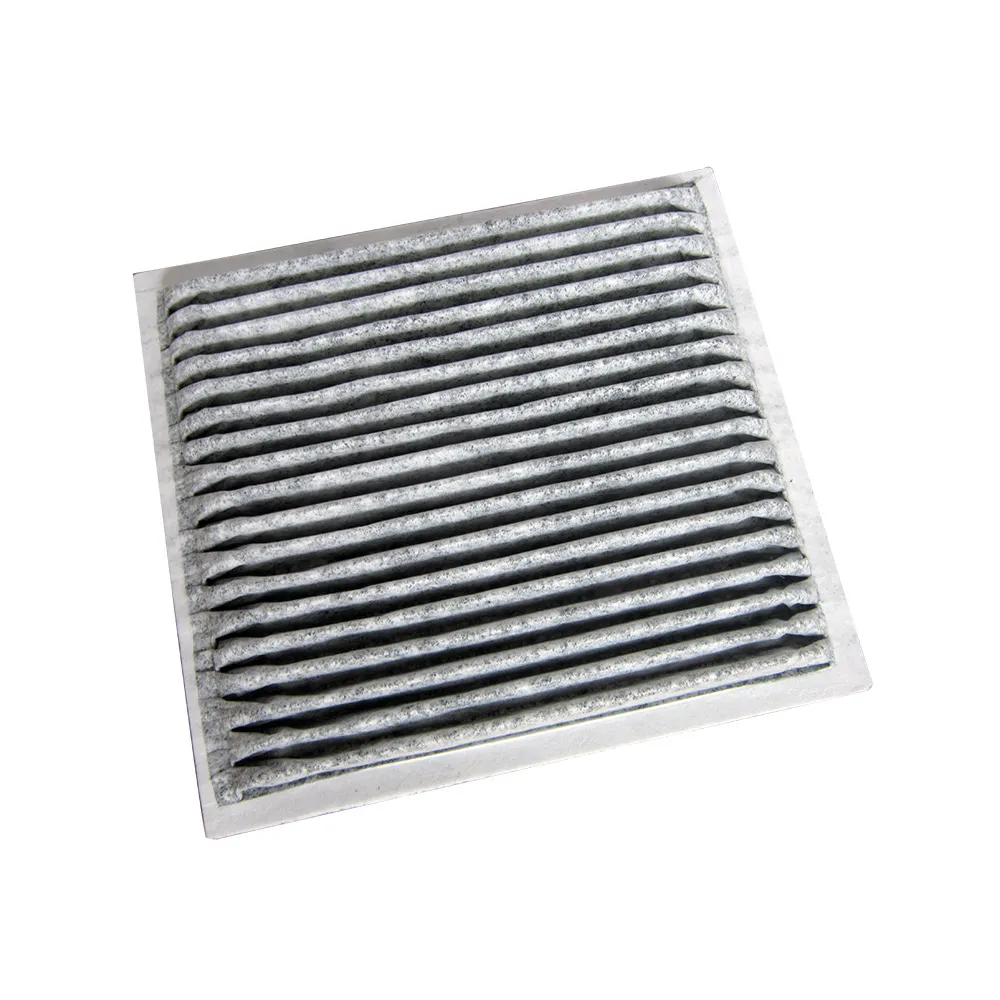
Trust and Reliability: Quality Assurance, Delivery, and Customer Support
Building and maintaining trust with B2B clients is fundamental for any manufacturer, especially when dealing with critical components like the gasoline filter funnel. This trust is built on a foundation of unwavering quality assurance, transparent operational processes, and responsive customer support. For a leading manufacturer, quality assurance is embedded into every stage of the product lifecycle, from initial design and material sourcing to manufacturing, testing, and packaging. This includes implementing a robust Quality Management System (QMS) compliant with international standards such as ISO 9001, which mandates rigorous documentation, process controls, and continuous improvement initiatives. Each batch of raw materials, whether high-density polyethylene for the funnel body or stainless steel for the gasoline filter screen, undergoes stringent incoming inspections to verify chemical composition, mechanical properties, and compliance with specifications. In-process quality checks are performed at various manufacturing stages, ensuring dimensional accuracy, structural integrity, and proper assembly. Finally, finished products undergo comprehensive performance testing, including flow rate validation, micron efficiency verification, and leak testing, to ensure that every gasoline filter funnel shipped meets or exceeds published specifications. This multi-layered approach to quality control provides clients with the assurance that they are receiving a reliable, high-performance product built to last.
Transparency in delivery and logistics is another critical component of trustworthiness. Reputable manufacturers provide clear and realistic delivery schedules, proactive communication regarding order status, and robust packaging to prevent damage during transit. For international shipments, adherence to customs regulations and efficient logistics partnerships ensure timely and cost-effective delivery, minimizing any potential disruptions to client operations. Manufacturers with a global distribution network and established supply chain resilience are better positioned to meet demand fluctuations and provide reliable service. Furthermore, a comprehensive warranty commitment stands as a testament to a manufacturer's confidence in their product's durability and performance. A standard warranty for a gasoline filter funnel typically covers defects in materials and workmanship for a specified period, offering clients peace of mind and protection against premature product failure. Beyond the sale, exceptional customer support is paramount. This includes readily available technical assistance for product selection, installation guidance, and troubleshooting. A dedicated support team that can provide expert advice on optimal usage, maintenance, and addressing specific challenges (e.g., unusual contaminants, extreme operating conditions) significantly enhances the overall customer experience. Providing an FAQ module, accessible online or through technical documentation, addresses common queries and empowers users with immediate answers. For instance, questions regarding the lifespan of a gasoline strainer under various conditions or the process for cleaning a reusable filter element are crucial for maximizing product utility. By excelling in these areas—quality assurance, transparent logistics, strong warranty, and responsive customer support—manufacturers like JY Filter reinforce their reputation as trustworthy partners committed to long-term client success, ultimately providing superior value for the gas filter cost.
Frequently Asked Questions (FAQ)
-
Q: What is the typical lifespan of a gasoline filter funnel?
A: The lifespan varies based on usage frequency, fuel cleanliness, and specific model. High-quality funnels made with durable materials like HDPE and stainless steel, if maintained properly, can last for many years (5-10+ years) in industrial settings. The internal filter element or gasoline filter screen may require periodic cleaning or replacement depending on the accumulated contaminants. -
Q: How do I know which micron rating is suitable for my application?
A: The ideal micron rating depends on the sensitivity of your downstream equipment. For modern common rail diesel engines, a finer filtration (e.g., 10-25 micron) is often recommended to protect precision injectors. For general fuel transfer to older equipment or storage, a coarser filter may suffice. Consult our technical experts for tailored recommendations based on your specific machinery and fuel source. -
Q: Can the gasoline filter funnel separate water from fuel?
A: Yes, many industrial-grade gasoline filter funnel models are equipped with advanced water coalescing or hydrophobic filter media specifically designed to separate free water from fuel. This is a critical feature for preventing corrosion, microbial growth, and engine damage in various applications, particularly in marine or humid environments. -
Q: What is the typical delivery lead time for bulk orders?
A: Delivery lead times depend on the order quantity, product customization requirements, and destination. For standard models, typical lead times range from 2-4 weeks. For large or customized orders, specific timelines will be provided upon quotation. We prioritize efficient logistics and clear communication to ensure timely delivery. -
Q: Is there a warranty for the gasoline filter funnel?
A: Yes, our Gasoline Filter products come with a standard manufacturer's warranty covering defects in materials and workmanship. Specific warranty terms and durations are detailed in our product documentation and can be provided upon request. We stand behind the quality and reliability of our products.
Future Trends and Innovations in Fuel Filtration Technology
The landscape of fuel filtration is continuously evolving, driven by advancements in engine technology, the proliferation of diverse fuel types, and increasingly stringent environmental regulations. Looking ahead, several key trends are set to shape the future of products like the gasoline filter funnel. One significant trend is the increasing demand for finer filtration levels. As engine components, particularly fuel injectors in modern common rail systems, become more sophisticated and operate at higher pressures and tighter tolerances, even microscopic contaminants become critical threats. This drives the need for filters capable of achieving sub-micron filtration, potentially incorporating advanced membrane technologies or electrospun nanofiber media for superior particle capture and reduced pressure drop. Such innovations in the gasoline filter screen will be paramount for protecting next-generation engines. Another burgeoning area is the integration of smart technology. Future gasoline filter funnel systems may incorporate sensors that monitor filter saturation levels, differential pressure, or even fuel contamination in real-time. This "smart filtration" would provide predictive maintenance alerts, optimizing filter replacement schedules and preventing unexpected downtime, moving away from reactive maintenance and towards proactive fuel management.
The rise of alternative fuels, including various biofuels (e.g., E85 ethanol blends, B20 biodiesel), synthetic fuels, and hydrogen, also presents new challenges and opportunities for filtration technology. Each fuel type may have unique chemical properties that affect filter media compatibility, water solubility, and susceptibility to microbial growth. Future gasoline strainer designs will need to be highly adaptable and utilize specialized materials that can effectively handle these diverse fuel chemistries without degradation or performance compromise. For instance, certain biofuels are known to absorb more water and are prone to microbial contamination, necessitating enhanced water separation and anti-microbial filter treatments. Furthermore, sustainability is becoming an increasingly important consideration in product design and manufacturing. This includes developing more durable, reusable, or easily recyclable filter elements, reducing reliance on single-use components. Innovations in materials science may lead to the creation of self-cleaning filter media or media with extended service lives, thereby minimizing waste and reducing the overall environmental footprint of fuel filtration. While the fundamental role of the gasoline filter funnel in ensuring fuel purity remains constant, its evolution will be characterized by greater precision, enhanced intelligence, broader fuel compatibility, and a stronger commitment to environmental sustainability, continuously driving down the effective gas filter cost through improved long-term performance and efficiency.
Conclusion: The Indispensable Role of Advanced Fuel Filtration
In summation, the critical importance of effective fuel filtration in today’s demanding industrial and commercial environments cannot be overstated. As the backbone of operational continuity and machinery longevity, the purity of fuel directly influences productivity, maintenance costs, and compliance with increasingly strict environmental regulations. The gasoline filter funnel, often equipped with an advanced gasoline filter screen or gasoline strainer, stands as an indispensable tool in this vital endeavor. Its ability to meticulously remove particulate contaminants and harmful free water before they can infiltrate sensitive fuel systems offers a first line of defense that translates into tangible economic advantages. From reducing unscheduled downtime and extending the lifespan of expensive engine components to enhancing fuel efficiency and ensuring regulatory adherence, the benefits are comprehensive and measurable. The strategic investment in a high-quality, technically superior gasoline filter funnel far outweighs the initial gas filter cost, delivering a substantial return through improved operational reliability and reduced total cost of ownership.
As industries continue to evolve with more sophisticated machinery and diverse fuel types, the need for robust, adaptable, and intelligent fuel filtration solutions will only intensify. Partnering with a manufacturer that demonstrates proven expertise, adheres to rigorous quality standards, offers customizable solutions, and provides exemplary customer support is paramount for long-term success. Companies like JY Filter embody this commitment to excellence, providing not just products, but integrated solutions that address the nuanced challenges of modern fuel management. By embracing advanced filtration technologies, businesses can safeguard their assets, optimize their operations, and ensure a cleaner, more efficient future for their fleets and machinery. The meticulous engineering and strategic application of the gasoline filter funnel are critical steps toward achieving unparalleled performance and sustained profitability in an increasingly competitive global landscape.
References and Further Reading
- Grand View Research. (2023). Fuel Filter Market Size, Share & Trends Analysis Report By Filter Type (Sediment, Fuel Water Separator), By End-use (Automotive, Industrial), By Region, And Segment Forecasts, 2023 - 2030. [Online]. Available at: https://www.grandviewresearch.com/industry-analysis/fuel-filter-market (This is a conceptual link to illustrate the type of industry report; actual report may require subscription).
- ISO. (2018). ISO 9001:2015 Quality management systems – Requirements. [Online]. Available at: https://www.iso.org/standard/62085.html (Standard page example).
- SAE International. (2020). SAE J1488: Fuel Filters—Methods of Test. [Online]. Available at: https://www.sae.org/standards/content/j1488_202008/ (Standard page example).
- Parker Hannifin Corporation. (2021). The Importance of Fuel Filtration: Protecting Your Engine and Equipment. [Online]. Available at: https://www.parker.com/portal/site/PARKER/menuitem.f0ae36725832a8494928e75e1122a208/?vgnextoid=861198533c307210VgnVCM10000048021dacRCRD&vgnextfmt=EN&vgnextchannel=fa3207011982b610VgnVCM10000048021dacRCRD (Example of an authoritative manufacturer's white paper).
- Machinery Lubrication. (2019). Fuel Filtration Best Practices for Diesel Engines. [Online]. Available at: https://www.machinerylubrication.com/Read/30919/fuel-filtration-diesel-engines (Example of industry forum/magazine content).
-
The Hidden Benefits of Proper Cabin Filter Use in Your VehicleNewsJul.31,2025
-
Replacing Your Gasoline Filter at HomeNewsJul.31,2025
-
How Often Should You Replace Your Car Air Cabin Filter?NewsJul.31,2025
-
How Much Does a Car Air Filter Cost?NewsJul.31,2025
-
Car Fuel Filter Price GuideNewsJul.31,2025
-
Best Car Air Purifiers for Allergy SufferersNewsJul.31,2025
-
Vehicle Performance with Premium Car Filter SolutionsNewsJul.02,2025
Related Products




